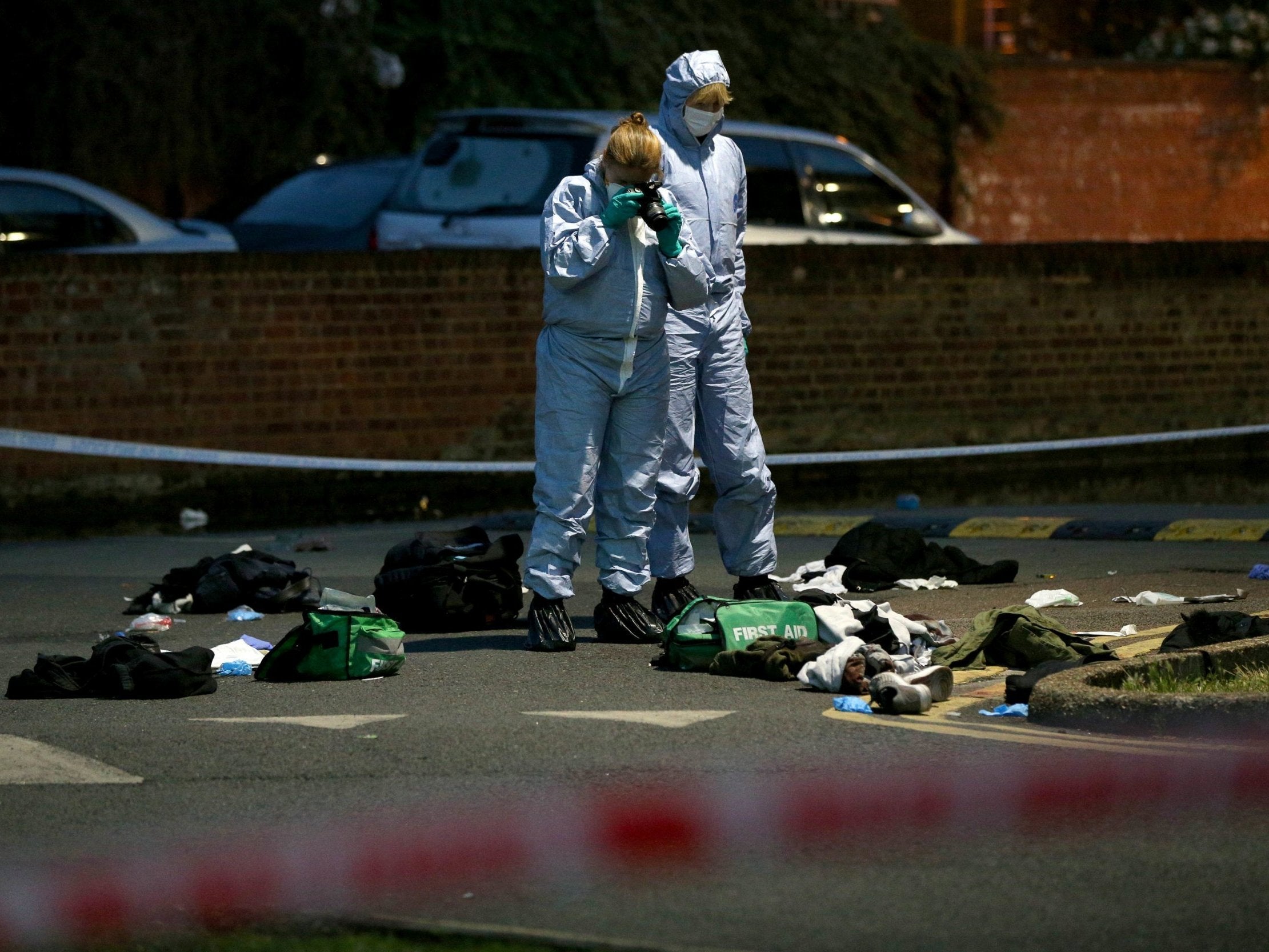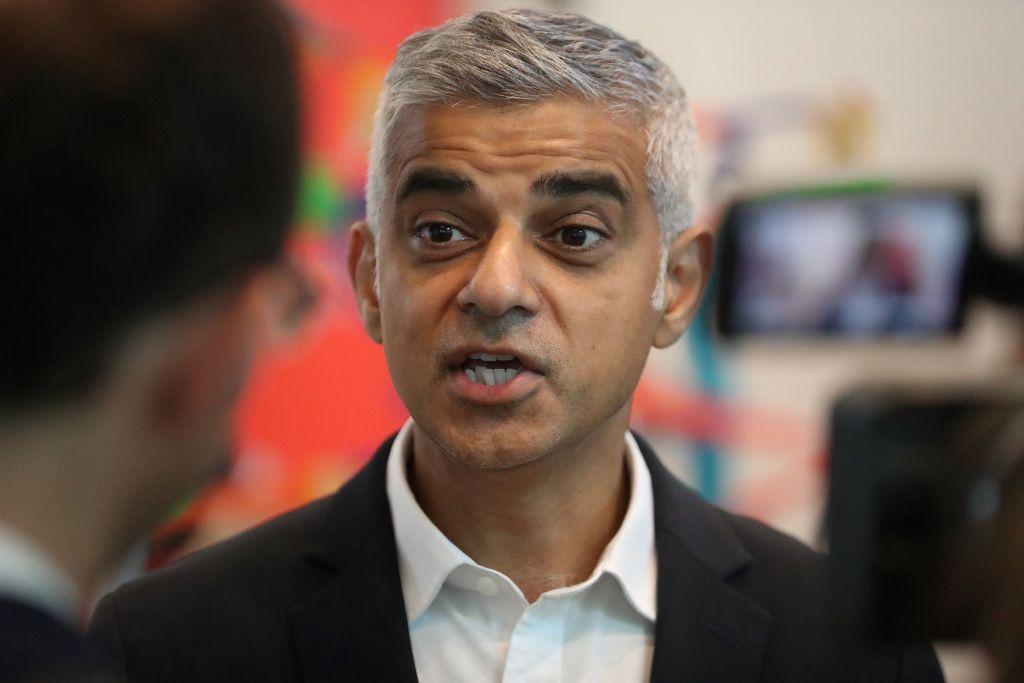Violent crime to be treated as 'public health issue' to reduce stabbings and shootings in London
'Causes of violent crime are many years in the making and solutions will take time,' Sadiq Khan says

Violent crime is to be treated as a “public health issue” in London as authorities work to prevent stabbings and shootings.
Mayor Sadiq Khan has awarded £500,000 to establish the capital’s new Violence Reduction Unit, which is modelled on a long-term programme in Glasgow.
He cautioned that its work would not “deliver results overnight”, adding: “The causes of violent crime are many years in the making and the solutions will take time.
“This unit is not a substitute for the investment our public services needed if London is to significantly cut levels of violent crime.”
The unit is tasked with tackling societal problems like poverty, social alienation, mental ill-health and a lack of opportunity that drive violent crime, using health and justice data to identify risk factors in children’s lives.
It aims to improve coordination between the Metropolitan Police, local authorities, youth services, health services, criminal justice agencies and City Hall.
Officials from London have modelled the programme on work carried out for more than a decade in Glasgow, which has seen the homicide rate in the former murder capital of western Europe halved.
Niven Rennie, director of the Scottish Violence Reduction Unit, said it started by “treating violence as a disease which was infecting our communities”.
“Scotland has shown that change is possible and we believe London can do the same,” he added. “Start with the belief that violence is preventable and anything is possible."
More than 100 murders have taken place in London so far this year, with a third of the victims aged 16 to 24, and three in five of the deaths being stabbings.
The latest fatal attack was on Tuesday night, when a 25-year-old man was found with a stab wound in Islington and pronounced dead by paramedics at the scene.
Police are also appealing for information on a double stabbing in Greenwich on Monday, which left one man in a critical condition and another injured in hospital.
Dr Vin Diwakar, the regional medical director for NHS England in London, said the capital’s major trauma units were currently “at the receiving end” of violent crime.
“It is vital that we take a joined-up approach to tackling this issue and understand that no single organisation can deal with it in isolation,” he added.
Patrick Green, CEO of the Ben Kinsella Trust, said knife crime needs solutions that go beyond arrests and police enforcement, adding: “Bringing together experts from a range of disciplines, sharing information which helps to disrupt criminal activity and intervene earlier to reduce the likelihood of violence is an important step forward in the fight to end knife crime.”
Women’s groups also welcomed the initiative, which will cover domestic abuse and the impact it has on children.
Mary Mason, CEO of Solace Women’s Aid, said: "Children of any age can develop symptoms of post-traumatic stress disorder ... it has negative implications as they get older and can lead to becoming perpetrators of abuse themselves."
The Violence Reduction Unit will work alongside the Metropolitan Police’s Violent Crime Taskforce, which has 272 officers focused on the worst-affected areas.
The mayor’s office said that although the taskforce had been making arrests and seizing weapons, “enforcement alone cannot solve this problem”.
“Whole communities must be part of designing and working towards the solutions,” a spokesperson said.
“The ultimate aim is to divert young people away from criminal activity, by supporting the vulnerable at an early stage and giving young Londoners better life opportunities.”
Steve O’Connell, chair of the London Assembly Police and Crime Committee, said there was a “worrying lack of detail” on how the unit will work across the whole of London.
“We will be keeping a close eye on whether this new plan has an impact on the ground and does not end up a missed opportunity,” he added.

Mr Khan has also launched a £45m Young Londoners Fund to provide young people with alternatives to crime and move those involved with gangs into employment and training.
Figures show an increase in violent crime across England and Wales, with the number of homicides recorded by police up by 12 per cent, knife crime up by 16 per cent and robbery by 30 per cent in a year.
In the year to June, more than 21,100 knife offences were dealt with by the criminal justice system – the highest number since 2010.
Earlier this year, the government’s first ever Serious Violence Strategy cited potential drivers including the “county lines” drug trade and incitement on social media.
But it was heavily criticised for omitting a leaked Home Office document saying government funding cuts to the police may have “encouraged” offenders amid the loss of more than 20,000 police officers since 2010.
Some senior police officers have also raised concerns that a dramatic fall in the use of stop and search has emboldened offenders to carry knives in the belief they will not be discovered.
The decline is now starting to reverse after calls for greater use of the tactic from the government and police leaders, who say the spread of body-worn cameras has caused the number of complaints to fall and reassured officers fearing racism accusations.
Police have been calling on the government to increase the funding given to stretched forces responding to an increase in violence, demand and the terror threat.
Speaking to officers at a national conference last week, the home secretary Sajid Javid vowed to fight for more money in a government-wide spending review.
